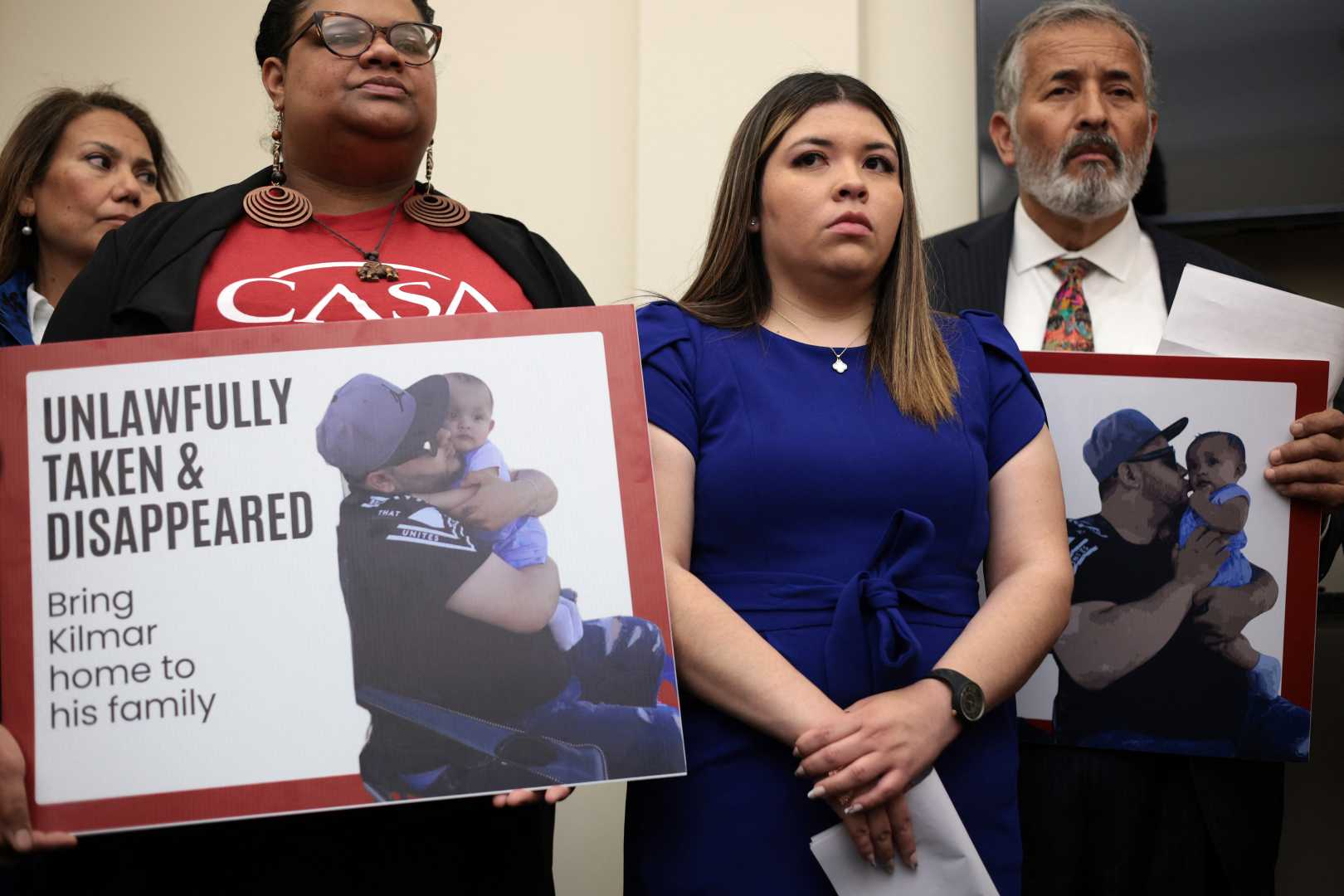Politics
Supreme Court Ruling Sparks Controversy Over Deportation Case

WASHINGTON, D.C. — The U.S. Supreme Court unanimously ruled that the Trump administration must take action to return a Maryland man mistakenly deported to El Salvador. In a 9-0 decision handed down on Thursday, the Court affirmed a lower court’s order for the government to facilitate the return of Kilmar Ábrego García, a Salvadoran national whose deportation was attributed to an administrative error.
Judge Paula Xinis of the Maryland district court had mandated that attorneys for the Trump administration provide daily updates on the status of Mr. Ábrego García, who is currently held at El Salvador’s Cecot mega-prison. The ruling has reignited tensions surrounding immigration policy and foreign relations between the two countries.
Mr. Ábrego García, 29, entered the United States illegally as a teenager and had previously been granted protection from deportation due to the risk of gang violence in his home country. His lawyer contends that claims he is affiliated with the MS-13 gang are unfounded.
Following the Supreme Court’s ruling, government officials presented their arguments to Judge Xinis, requesting an extension to address her requirements. They described the deadlines imposed by the court as ‘impracticable,’ raising concerns about the feasibility of complying with the order.
During a tense court hearing, Judge Xinis questioned government attorneys about Mr. Ábrego García’s current location. ‘I’m not asking for state secrets,’ she said, ‘I’m asking a very simple question: where is he?’ Ultimately, she demanded that the government provide daily updates on his situation and the steps being taken to facilitate his return.
Attorneys representing Mr. Ábrego García criticized the administration for attempting to ‘delay, obfuscate and flout court orders,’ emphasizing the urgency of ensuring his safety. The administration’s position, as articulated by Solicitor General Dean John Sauer, argued that the president, not federal courts, holds the authority to conduct foreign policy, which includes matters of deportation.
The Supreme Court has not mandated a specific timeline for Mr. Ábrego García’s return but indicated that Judge Xinis should reassess her directive with respect to executive authority in foreign affairs. ‘The district court should clarify its directive,’ the Court stated. ‘With due regard for the deference owed to the executive branch in the conduct of foreign affairs.’
In light of the Supreme Court’s ruling, President Donald Trump remarked that he respects the Court’s decision and would comply with its wishes. However, recent statements from Salvadoran President Nayib Bukele have complicated the situation. In a meeting at the White House, Bukele dismissed the notion of facilitating Mr. Ábrego García’s return, questioning the legitimacy of the request and asserting that he would not release a suspected terrorist.
‘How can I smuggle a terrorist into the United States? I’m not going to do it,’ Bukele stated firmly, emphasizing his position during the Oval Office meeting.
The government maintains that reaching out to El Salvador to secure Mr. Ábrego García’s return falls under foreign relations, an area they argue is outside the courts’ jurisdiction. The Justice Department has communicated to the court that any action taken should involve negotiations with the Salvadoran government.
Senator Chris Van Hollen, who represents Mr. Ábrego García, expressed deep concern regarding the implications of this case for the rule of law in the U.S. ‘It took them only 72 hours to illegally abduct Ábrego García and take him out of the country,’ Van Hollen told BBC News. ‘They can get him back within that timeframe, and he needs to be returned immediately.’
Mr. Ábrego García’s wife, Jennifer Vásquez Sura, a U.S. citizen, has been advocating for his release since his deportation. ‘I will continue fighting until my husband is home,’ she stated, emphasizing her determination to resolve the situation.
This case highlights significant tensions surrounding immigration enforcement, foreign relations, and judicial authority, raising critical questions about the intersection of these issues in contemporary American society.












